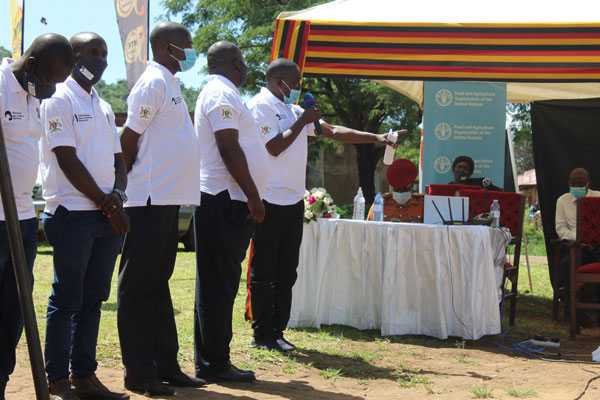
Nakasongola, Uganda | THE INDEPENDENT | The Food and Agriculture Organization of the United Nations (FAO) has encouraged government and the Uganda Veterinary Association (UVA) to ensure the services of animal health personnel reaches out to the common person at the grass roots.
This, FAO suggests, can be done by strengthening professionalism and improving staff levels across the country, and through programs that create opportunities for the youth, women and unemployed.
“The current estimate of about 3,000 degree and diploma holders in the animal health sector is insufficient to meet demand,” said Dr. Charles Owach, who represented the FAO Country Representative Antonio Querido at the World Veterinary Day celebrations held in Nakasongola on Saturday.
Assistant FAO Representative Dr Owach stressed the importance and role of the World Veterinary Day, in highlighting achievements, identifying priorities, and reaching the grassroots.
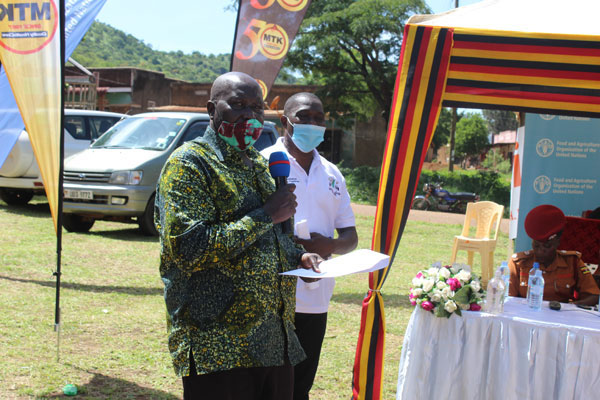
“World Veterinary Week events are expected to rally the communities, professionals and the general public to understand how to improve production, productivity, welfare and health of the animals, hence indirectly contributing to the health of humans,” Dr Owach said.
He said, the ballooning Ugandan population means there is much more pressure for food, meaning the roles of veterinarians will be crucial. This, he added, will require innovative approaches to ensure sustainable food production and economies.
Theme based on COVID-19 challenge
This year’s theme for World Veterinary Celebrations is “Veterinarian response to COVID 19 crisis”.
The week-long activities that included virtual discussions, training and free animal vaccinations, attracted representatives from the Food and Agriculture Organization, Ministry of Agriculture Animal Industry and Fisheries, Ministry of Health, Uganda Wildlife Authority, Uganda Veterinary Association, Uganda Veterinary Board, the National Agricultural Research Organization and the College of Veterinary Medicine Animal Resources and Biosecurity, Makerere University.
Other than the virtual conferences, Uganda Veterinary Association officials appeared on radio and TV shows in Kampala, Nakasongola and Alebtong in the Lango region, where a memorial was also held for Prof. Johnson Opio Acon.
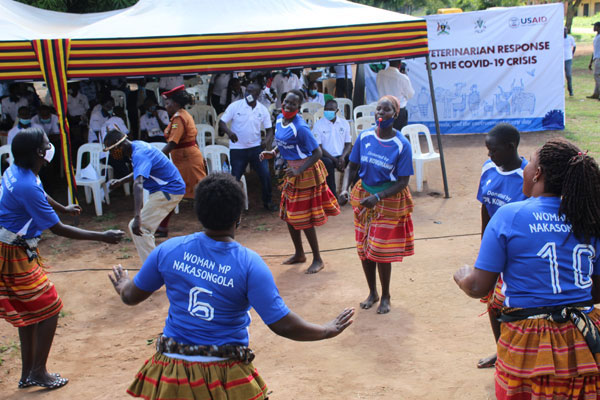
FAO’s role in animal sector
Dr Owach said that in spite the COVID-19 pandemic, FAO in Uganda has maintained significant contact with foods of animal origin value chain producers and One Health Services.
This, he stressed, has ensured that various food supply chains remain alive, disease outbreaks are reported on time and responded to. FAO teams also supported Rift Valley Fever and Anthrax outbreak investigations and response in Kabale and Rubirizi Districts in 2020.
FAO’s role in Uganda has included helping refugees and communities across the country that are threatened by natural disasters and the locust invasion.
In addition, FAO facilitation and participation in the National One Health Platform activities, has been done while ensuring that Global Health Security Agenda milestones are met as per International Health Regulations.
“In this regard we are currently addressing several technical areas and commendable gains have been met in Antimicrobial Resistance mitigation, Zoonotic Disease control, Biosafety and Biosecurity, National Laboratory Systems, and workforce development,” Owach said.
He hailed USAID for funding the Global Health Security Agenda project under which the week-long celebrations were supported.
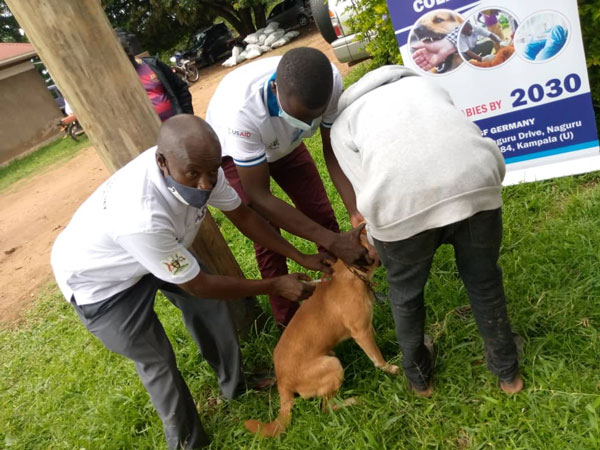
UVA makes call
The newly elected President of the Uganda Veterinary Association (UVA) Dr Daniel Kasibule called on government to recognize the role their members can play in improving the general economic and health of the country.
Dr Daniel Kasibule stressed that the rampant animal diseases ravaging the country that have led to multiple quarantine measures, are an economic and health risk, that should be addressed fully, not piece meal.
He again called for the reinstatement of a ministry in charge of Animal Industries and Fisheries, as was before the years of the NRM government. This, he argued, will help the country budget to meet the challenges and fund improved salary and staffing levels of veterinarians, especially in Local Government across the country.
The animal sector was downgraded from having a Ministry of Animal Industries, to currently being one of the departments in the Ministry of Agriculture, Animal Industry and Fisheries. This greatly reduced on the staff levels needed for monitoring and supervision of activities in their sector.
“I appeal to the government to consider recentralizing the veterinary services to ensure rapid response to diseases ( epidemics) in addition to reinstatement of the ministry of veterinary services and animal industry,” Dr Kasibule said.
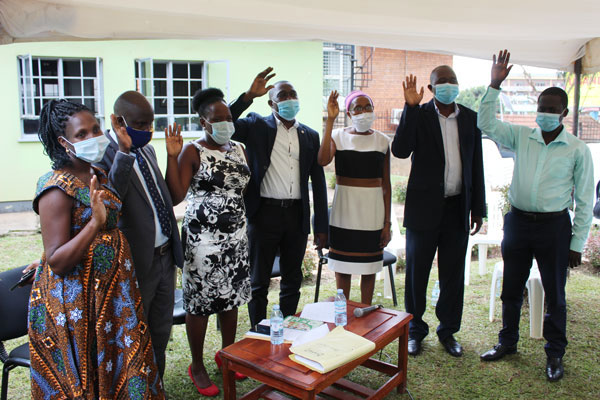
Kasibule said his executive will work with stakeholders to help improve welfare, especially the salaries and other emoluments extended to veterinarians who currently work in difficult conditions, and with many job related hazards.
“We are a relatively small profession. Our critical and far-reaching roles in animal health, welfare and public health mean that we are uniquely placed to offer the Government evidence-based and informed advice, and policy recommendations,” said the new UVA president.
He added that UVA is also willing to help government sensitize the public towards improved consumption of animal products like milk and eggs. Kasibule said such a consumption effort is needed to fight malnutrition, which statistics show is rampant in the country, especially among children.
NEW UVA EXECUTIVE
| Position | Elected |
| President | Dr Daniel Kasibule |
| Vice President | Dr Generous Behabura |
| General Secretary | Dr Obbo Bonifance |
| Deputy General Secretary | Dr Geoffrey Mukama |
| Treasurer | Dr Dr Ben Ssenkeera |
| Deputy Treasurer | Dr Asiimwe Carol |
| Execuitive Committee members | Dr. Abed Bwanika |
| Dr Maureen Mayanja | |
| Dr Bameka Ronald | |
| CVA councilor | Dr William Ssendaula Blater |
 The Independent Uganda: You get the Truth we Pay the Price
The Independent Uganda: You get the Truth we Pay the Price





